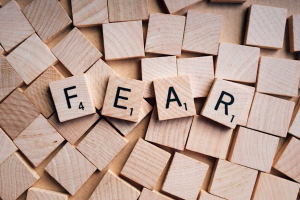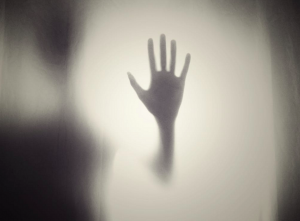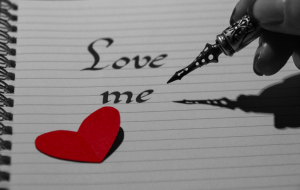
Lately we’ve been talking a lot about what differentiates the decent stories from the ones that gut hook us and don’t let go. In my opinion the truly superlative stories stand out in one way. We are not only entertained…we are changed. We aren’t the same person we were when we flipped open to page one and decided to give the story a go.
By the end, through characters, trials, challenges, heartbreak, ruin and victory we are forever a different person. The story generates a chemical change, rendering us a cake that can’t be unbaked.
Great stories (and the authors who pen them) serve us fresh insight into ourselves and others, a different perspective on the world around us. They might reveal a darkness we never noticed or were to afraid to face or offer hope we didn’t know we could have.
Most vital of all, these stories provide perspective we could gain no other way.
Fiction is the only way we can step into the shoes of a broken, pathetic alcoholic (Girl on a Train), an aging heavy metal rock star burdened by false guilt who never truly escaped the sadistic father who turned his childhood into a hell (Heart-Shaped Box).
We can know what it is to feel like life is no longer worth living once we’ve outlived our usefulness even if we are young (A Man Called Ove). We can experience the gross injustice and humiliation of being a black maid in the American South during the 60s (The Help) no matter what color our skin.
Regardless of race, faith, gender, or background, stories allow us into a perspective to experience life, to encounter our own wounds (wounds common across all of humanity) from a different vantage point. We come to appreciate how seeing our pain worked out through another gives us the psychic distance necessary for us recognize then heal the pain that in real life we can’t yet touch…without screaming.
The Battle of Logic & Emotion

I find it interesting that scientists really don’t have a definitive reason WHY we dream. Is is the brain defragging? The subconscious mind revealing what we can’t see when we’re awake because the left brain rushes in with a logical explanation?
When left brain gets a vote, it’s all too easy to miss the wolf in sheep’s clothing.
He wasn’t being mean. It was a joke. He’s right. I don’t have a very good sense of humor.
But fiction? Fiction is emotion. Fiction is primal and hooked directly into the right brain. Dreams are not ruled by logic, but they are extremely limited in what they can do once we’re up and have had our coffee. But, there’s another way…STORY.
Yet how do so many of us tackle our demons?
If you’re like me, you read self-help books about self-esteem, boundaries, forgiveness and healing and while these books can offer a lot of great information, (in my POV) they’re talking to the wrong side of the brain.
We can read all the self-help books about forgiveness, but what happens when we come face to face with our betrayers? When we have to be in the same room with flesh-and-blood villains who have zero remorse over the ruin left in the wake of their actions? The liars, pillagers, and plunderers we once supported, loved and trusted…who knifed us in the back and never shed a tear after leaving us like this.

I can tell you what happens when we face these folks.
We’re calm and composed and easily recall the breathing exercises, meditation, and self-affirmations spoken into a mirror. We stare into our betrayer’s face knowing we’re a better person who’s done a lot of therapy and exercises. We even composed long letters of how this person hurt us, burned the letters and let the embers fly away on zephyrs delivering our pain into the sky and to the unicorns.
And everything is okay because we know hurting people hurt people….and….
%$#& THAT $#!%!
Reptile brain rises up like a hidden viper threatening to sink its fangs into left brain’s soft gray matter if is says one frigging reasonable word.

While left brain is the calm, enlightened negotiator, reptile brain is Old Testament and Old School and believes an eye for an eye. Right brain is raw emotion and the one who’s closest to the reptile (brain) inside all of us.
What happens next in such a confrontation can be placed anywhere on a large continuum from getting in a shouting match spewing venomous words to ending up on an episode of Dateline.
Right brain is creative, thus good at hiding bodies.
Why Fiction?
Yes, self-help books and therapy, etc. have a place, but I don’t think they’re nearly as well-suited for healing wounds as story is. Why is that?
Because we cannot heal emotional wounds with logical poultices.
It’s like trying to halt a runaway MRSA infection with anti-depressants. Infection is virus and it needs something anti-viral, equipped to surround and dismantle the invasion.
Same thing goes for psychic wounds.
The wounds created BY emotion (betrayal, abandonment, exploitation, abuse) can only be healed WITH emotion. Inner demons and wounds are by nature emotional, thus in the realm of the right brain (and limbic brain). This means the right brain is far better suited (perhaps even DESIGNED) to stop the “infection” and heal the damage.

When we read fiction and vicariously experience our hurts, failures, disappointments, betrayals through another set of eyes, it’s a way of facing our villains in life. We get a place to feel these emotions, but better still? Story shows us it is possible to come through the fire not only healed, but stronger and better.
By reading all kinds of stories with characters battling a vast variety of problems, we can experience far greater empathy, compassion, understanding and forgiveness. It’s also far more effective than coldly analyzing our baggage on a flow chart.
Mending the Broken

For me, my greatest AH-HA moments have come from fiction. Stories have allowed me another way of looking at myself and my pain.
The most recent example of this came from Heart-Shaped Box. Sure it’s a horror, the story of a vengeful ghost hot on the tail of an aging rock star. Yet, oddly enough, this story changed my perception of myself more than a stack of self-help books and years of well-meaning therapists ever did.
Fifty-four-year-old rock star (Judas Coin) is on the run from a vengeful spirit with his goth girlfriend (Georgia) who’s half his age. I could relate to Georgia, though our backstory is different.
She believes she’s damaged goods, worth nothing and grateful for the crumbs that fall from the table. She’s had a hard life filled with exploitation, pain, failure and shame and, as a result, chooses men she knows will hurt her because suffering is what she deserves.
The Lightning Strike

Judas and Georgia have a conversation at a Denny’s during a brief reprieve from the ghost who’s hunting them and end up on the topic of kids. She says she’s never had kids because she’s too afraid they’ll find out about her. Judas asks what exactly her kids would find out. This next bit is some of the most powerful dialogue I’ve ever read.
Georgia: “That I dropped out of high school. That when I was thirteen I let a guy turn me into a prostitute. The only job I was ever good at involved taking my clothes off to Mötley Crüe for a room full of drunks. I tried to kill myself. I been arrested three times. I stole money from my grandma and made her cry. I didn’t brush my teeth for about two years. Am I missing anything?”
Judas: “So this is what your kid would find out: No matter what bad thing happens to me, I can call my mother, because she’s been through it all. No matter what shi##y thing happens to me, I can survive it because my mom’s been through worse, and she made it.” ~ Heart-Shaped Box by Joe Hill (page 171).
I remember this part of the novel hitting me like a bolt from the sky and I burst out crying, the moment of catharsis so raw and visceral. I once was Georgia (maybe a part always will be). Because of my life experiences, I too believed I was damaged goods.
Because I empathized with Georgia (similar demons) I could vicariously experience her breakthrough, that WOW moment when Judas completely reframes what she’s just said. She isn’t “damaged goods” at all. Rather, she’s like furniture that’s been battered and scratched that collectors pay big bucks for because it’s “distressed” and thus more interesting and far more valuable because of its damage and scars.
I’m sure a zillion well-meaning friends or shrinks told me the same thing. Probably read similar notions off faded Post-Its on the bathroom mirror, so why didn’t the happy, happy mantras stick? Why didn’t these affirmations melt me, undo me and remake me?

It’s because that left-brain approach is too sterile, and it doesn’t shove us face first into what we need to face. Fiction, on the other hand is ugly and dirty and raw. It provides intimacy and slams that psychic distance tight (while we still are technically “safe”).
Real fiction, the good stuff, reveals that the worthless “damaged goods” in truth, are valuable and maybe even priceless. The story shows the protagonist his or her worldview, their perception of themselves is faulty and through the crucible remolds the protagonist into what we call a hero. This is why I challenge all of you to be fearless in your stories, because if you can be fearless? So can your readers and they will love you for it.
What are your thoughts? I like good self-help books and therapy is important and often vital. But fiction really has a way of grabbing me by the scruff and shaking me. Have you ever read a book that completely revealed something about your own wounds? That helped you? Gave you insight? Helped you heal?
I believe all genres have the ability to give us tremendous healing and hope y’all will check out my Speculative Fiction Class where we are going to bore into the grit and heart of the dark stuff.
I love hearing from you!
For the month of AUGUST, for everyone who leaves a comment, I will put your name in a hat. If you comment and link back to my blog on your blog, you get your name in the hat twice. What do you win? The unvarnished truth from yours truly.
I will pick a winner once a month and it will be a critique of the first 20 pages of your novel, or your query letter, or your synopsis (5 pages or less).
July’s winner will be listed next week.
****And MAKE SURE to check out the NEW CLASSES classes below (including writing layered characters and strong females) and sign up!
Summer school! YAY! We’ve added in classes on erotica/high heat romance, fantasy, how to write strong female characters and MORE! Classes with me, with USA Today Best-Selling Author Cait Reynolds and award-winning author and journalist Lisa-Hall Wilson. So click on a tile and sign up!
[abcf-grid-gallery-custom-links id=”22231″]








19 comments
2 pings
Skip to comment form
Reminds me a lot of Wabi-Sabi. It’s a Japanese view that something is beautiful because of its imperfections.
This didn’t hold a lot of resonance for me until I heard a Ted talk on it. It was framed in a story, and I still remember it because it made me cry.
The power of story. There’s a reason Jesus taught with parables.
You just described why I write.
When I started writing my first book, I was as depressed as I had ever been. The most real scene I ever wrote was the scene where the heroine was contemplating suicide. That scene was not only the turning point for my character, it was my turning point too. I wasn’t exactly suicidal like my character, but I worked through my own depression, thanks to her.
Loved this! Hit so many nerves. Any visit to an art museum, or study of a great artist is evidence that most great art is birthed in pain.
“The wounds created BY emotion (betrayal, abandonment, exploitation, abuse) can only be healed WITH emotion.” So antithetical to the way our culture operates, but I think you have a point there. Good stuff!
Yes! That is why fiction is so important. It can make a reader see things they can’t see in real life!
You nailed it for me. Healing is what it’s all about. Glad to have found my way to your blog.
Kristen, you are often so apropos to what is going on in my life. How do you do it? I’m in central Florida helping my ill mother and my brother, whom I don’t get along with because we are complete opposites and he’s abusive. I have to bite my tongue over most of everything he says for the sake of my mom. I feel trapped and scared. I’ve been here two weeks and it feels like an eternity. One more day to go before I return home to my family. I know much of this experience will find its way into my writing and hopefully useful for others. Thank you for this. I’m
In tears. ??
Author
(((HUGS))) Treasure it and all its sharp edges and go make some art 😉 .
Wow! Talk about timing! I just finished my novella, but there were a couple of things about the ending that just weren’t ringing the bells for me. This is exactly what I needed to read! That’s what’s missing–my main character is too “roll over me.” Going back to add some fight in her. Thanks, Kristen!
This is all true and I’ve had my transformative moments while reading, but as a writer, I don’t want to go into a project thinking I have to be a therapist for my readers. On the other hand, writing honestly, putting myself into my work, and being unafraid to use past experience to add depth and power to my work is important, I believe.
Beautiful and powerful. Thank you.
Yes, I always said people are changed more by a story than a sermon.
I was a Georgia, too, and back in the 70s we didn’t even call it bullying when it was only verbal–so my teenage depression and plummeting self-esteem on top of neurological oddities (TLE and Aspy) and the fact that I really WAS ugly, all buck teeth and nose, all that was my own fault, too.
But I loved to read, so I majored in writing and literature. WRONG! Ok, I get it literary critics in academia aren’t meant to talk about what they LOVE about reading; all writing, even modern, must be examined as cultural artifact. I had to slip into the Middle Ages just for grad school to be bearable, where such discourse made more sense.
But I emerged from academia even more jaded as a result.
How refreshing to find that grown-ups can still talk about the very personal power of reading to move us emotionally! I wasted 15 years of my adulthood not realizing how awesome is the community of writers out there.
I feel like a kid again, like I get a college do-over and my professors are writing bloggers like you, Kristen, and others. Healing indeed.
Kristen, I loved the Heart-shaped Box. My husband bought it for me for my birthday after seeing him on a talk show. I’ve been listening to a few more of his audiobooks through Overdrive. You know who he is, right?
Author
I do. I didn’t when I bought the book initially. But it has become an all-time favorite. I am on my fourth run through. The audio version is SUPERLATIVE!
I have read paragraphs that caused tears to squirt out of my eyes. Frederick Buechner’s “The Book of Bebb.”
So very, very true. By writing, we often work through things we didn’t even know we needed to address.
I have had to re-read the book because so much of it opened scares I had securely put into a purple heart shape box in my mind after years of reading self-help books that made little to no sense to me.
My mother use to say if you want to heal read or watch movie that make you cry, really cry. I would tell her I cried enough. After reading the blog and listening to Heart Shape Box. It seems Mom was right
First-off, your new blog looks fabulous!
Second, this was precisely the blog post I needed to read right now. I’m working on re-writing book 2 in my series, and have been totally stuck (possibly because half the story was written 6 years ago, so it’s been in my mind forever…). And although the post doesn’t really change any of the plots, I now feel that magical spark towards book two and the internal shame plot a couple of my characters are working through. BLOCK GONE.
THANK YOU! <3
PS. On the therapy thing, I've been seeing someone who does a form of belief-shifting that actually uses the heart for healing–and NOT the mind–sure the mind is a tool, but when it comes down to it, it's the heart that settles into that peaceful, loving, open state (the mind just gets in the way).
[…] via What Becomes of the Broken-Hearted? Why Fiction Heals Like Nothing Else Can — Kristen Lamb […]
[…] “What Becomes of the Brokenhearted: Why Fiction Heals Like Nothing Else Can” by Kristen Lamb: The premise here it that fiction provides the kind of experience and perspective that can only be mirrored in real life, and brings emotional healing through the emotional experience of story rather than reason and logic. Again, yay reading! […]